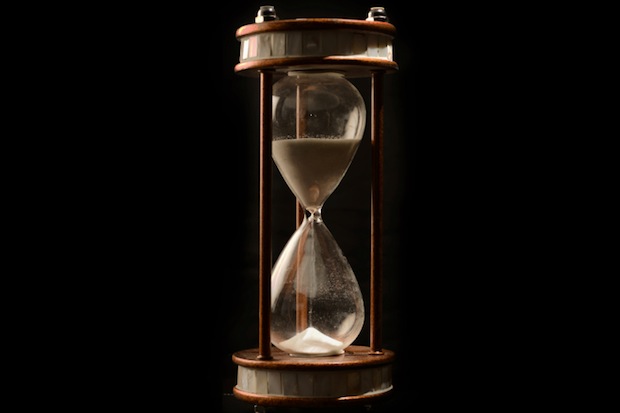The end of the year seems a good time to think about lasts. Not many of us ever do. Firsts are always landmarks: the first time you taste alcohol, drive a car, have sex. Then the first time your child talks, walks, goes to school. All are noted at the time, stored away in the mental file marked ‘life events’. But when do we ever notice, much less remember, a last? We’re doing them a disservice — in many cases they’re even more poignant than the firsts.
One problem, of course, is that we often don’t know it’s a last at the time. You’ll register your last day in a job, or your last exit from a house you’ve owned. Recovering alcoholics note (though only in retrospect) the occasion of their last drink. But the last time you go to London? Eat oysters? Cry? Only decades later will you realise that a last has occurred, by which time the event itself may well be lost in the fog we call memory.
Someone who was obsessed with lasts was Alan Clark. The second volume of his diaries includes an entry about them, focusing on his sons: the last time he read them a bedtime story, kissed them goodnight and so on. The theme highlights why lasts hold such power: they’re a reminder of mortality, of the fact that each one is a step along the road toward the last last of all, your final breath. We become parents to travel back in time, to attain a proxy state of youth — and then before you know it your children are dragging you forward, reminding you that everything in life changes so quickly. I remember the night before my son’s potty training started, thinking, ‘This will be the last nappy I ever put on him.’ Now he’s five: already I’m looking forward (in only one sense of the phrase) to the last time we’ll kiss each other on the lips.
An acceptance of these occasions, surely, is a sign that you’ve accepted you’re not immortal. It’s death by a thousand lasts. A friend of mine has an old squash racquet which hasn’t seen action for years. He used to play a lot, to a high standard, but now cannot remember his final game: ‘They just seemed to fizzle out.’ Instead he sticks to doubles badminton (‘much more genteel’). At least he knows the transition has been made. Often you don’t. ‘The first time you are impotent,’ wrote Alan Clark, ‘does not immediately follow the last time you have sexual intercourse… The last time you don’t know, not really know because there is always hope, until much later.’ Someone in their fifties once confessed to me that he and his partner didn’t have sex any more: ‘I wonder,’ he said (drink had been taken), ‘if I’ll ever do it again?’
Occasionally a last announces itself in a relatively trivial way. Anyone making a purchase late in the afternoon of 31 August 1971, for instance, would have recognised it as their final use of old money, that being the day the penny and threepence departed, ending the transition period to decimal currency. (By coincidence, it was also the last day John Lennon ever saw Britain, though of course he didn’t know that at the time.) At some point in the next few years, perhaps, when cheques are finally phased out, some of us will be aware of writing our last one. Usually, however, the reason we know a last is a last is the big one, the reason that comes bearing a scythe. This can apply to pets, as with a dog’s final walk before ‘that’ trip to the vet. But when it’s a human approaching the end of their life, occasions carry a real charge. A cousin of mine succumbed to illness earlier this year: she and her husband made sure they took one last trip with their teenage children to their beloved Cornwall. It was good that honesty reigned — so often in this country we hide, even in the final days, from the D word, the inevitability that’s clearly so close. At the age of 21 I visited my grandmother in hospital: turning to leave I knew that this would almost certainly be the last time we ever saw each other. Yet still neither of us acknowledged that fact.
More recently I went with a terminally ill friend to the pub. His death came even more quickly than envisaged, with the result that I’m fairly sure I had Graham’s last pint with him. My partner’s father, meanwhile, has just surrendered to frailty and given up his driving licence. For anyone, but especially for someone of his generation, driving is a fundamental expression of independence, so the move must have taken courage, and sparked so many memories. The last time he ever drove, we worked out, was to post the application for a renewal of his driving licence.






Comments